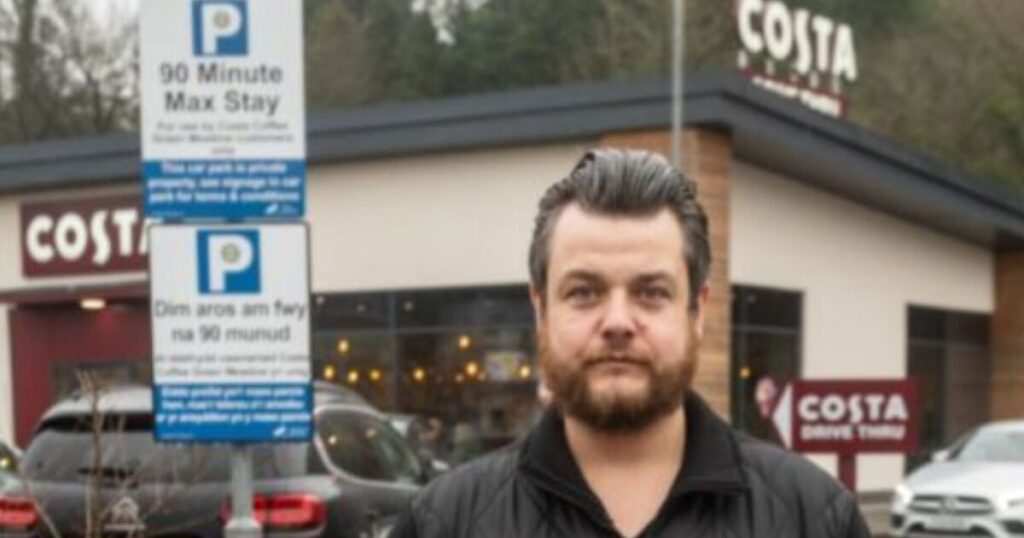Introduction
A man named Ashley Pavett faced a life-altering situation after being fined for overstaying at a Costa Coffee car park. His story reveals how a seemingly small issue escalated into serious consequences, affecting various aspects of his life.
The Incident
In April 2024, Ashley parked his car at a Costa Coffee in Green Meadow, Pontyclun, South Wales. He exceeded the allowed parking time by just 10 minutes, going over the 90-minute limit. As a result, he was issued a £60 parking fine. Initially, Ashley felt frustrated but chose to pay the fine within 14 days, hoping it would resolve the situation.
Unexpected Consequences
Fast forward to October 2024, Ashley received a shocking phone call from his former landlord. The call was about an urgent letter that had arrived. The letter revealed that Ashley had been issued a County Court Judgment (CCJ) due to the unpaid parking fine. A CCJ is a legal ruling from a court that declares a person must pay a debt.
Ashley was confused and distressed. With little understanding of what the court judgment meant, he decided to pay an additional fine of £192 to avoid further complications. He believed this payment would help clear up the issue once and for all.
Miscommunication and Mistakes
After paying the extra fine, Ashley reached out to Parking Eye, the company managing the car park. To his surprise, he found out that Parking Eye had sent additional fines to his old address, assuming he had never paid the original £60 fine. Because Ashley did not receive any of these notices, legal action was taken against him.
Ashley expressed his frustration, saying: "I was £252 out of pocket, which is painful enough, but the worst part is the personal issues the CCJ caused." He faced problems finding a new rental property and worried about his job. His credit score dropped significantly, plummeting by around 500 points, all resulting from a parking fine he believed had been settled properly.
Seeking Resolution
Determined to regain control of his situation, Ashley made a complaint to the British Parking Association (BPA). The BPA contacted Parking Eye on his behalf. By January 2025, Ashley received news that his original payment of £60 was found and that the court action against him had been canceled. He was not only informed that the CCJ would be lifted, but he would also receive a refund of the £192 fine and the original £60 as a goodwill gesture.
Despite this positive turn of events, Ashley still felt the repercussions of the situation. He stated, "This has affected me so much; it has really caused chaos in my life. I feel like I deserve some form of compensation beyond what I’ve already received."
The Company’s Response
A spokesperson for Parking Eye responded to the situation, stating that they had no record of Ashley’s April payment. They emphasized that their car parks are well-marked with clear signs about parking rules, including the 90-minute maximum stay. They asserted that the process of managing payments is robust and that all correspondence regarding fines was sent to the vehicle’s registered address.
Government Action Against Unfair Practices
Ashley’s experience highlights broader issues with parking enforcement and the potential for unfair treatment of motorists. In light of such incidents, the government is planning to address the actions of "cowboy" parking firms. They aim to minimize excessive and unfair charges and set new regulations that could cap fees and debt recovery costs.
Conclusion
Ashley Pavett’s ordeal over a ten-minute overstay at a coffee shop parking lot illustrates how quickly minor issues can spiral out of control. He faced significant emotional and financial challenges due to administrative errors and miscommunications. While he is relieved to have resolved the immediate problem, the lasting effects on his life and financial status are profound. His story serves as a warning to others about the importance of keeping clear records and being aware of parking regulations to avoid similar complications.
